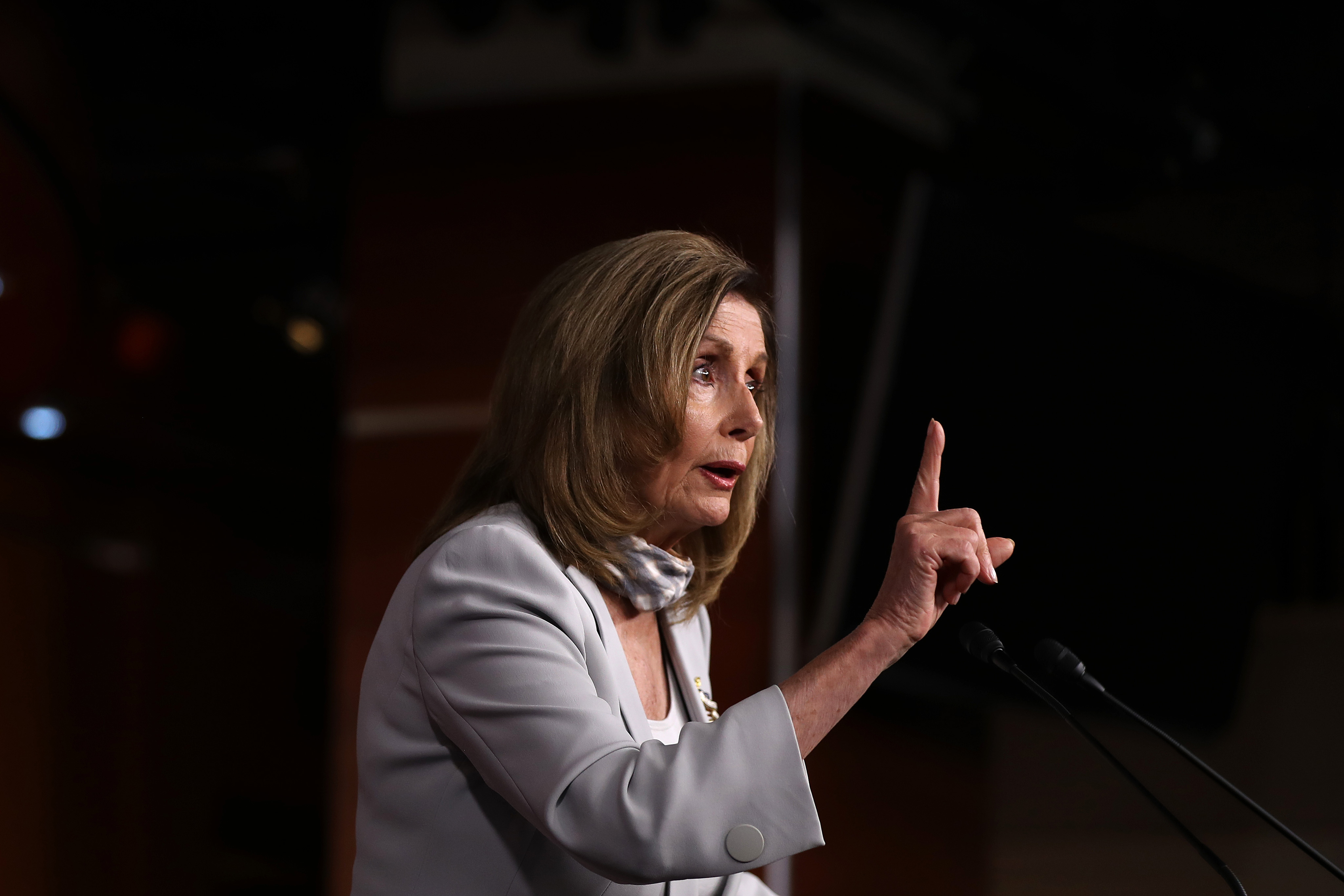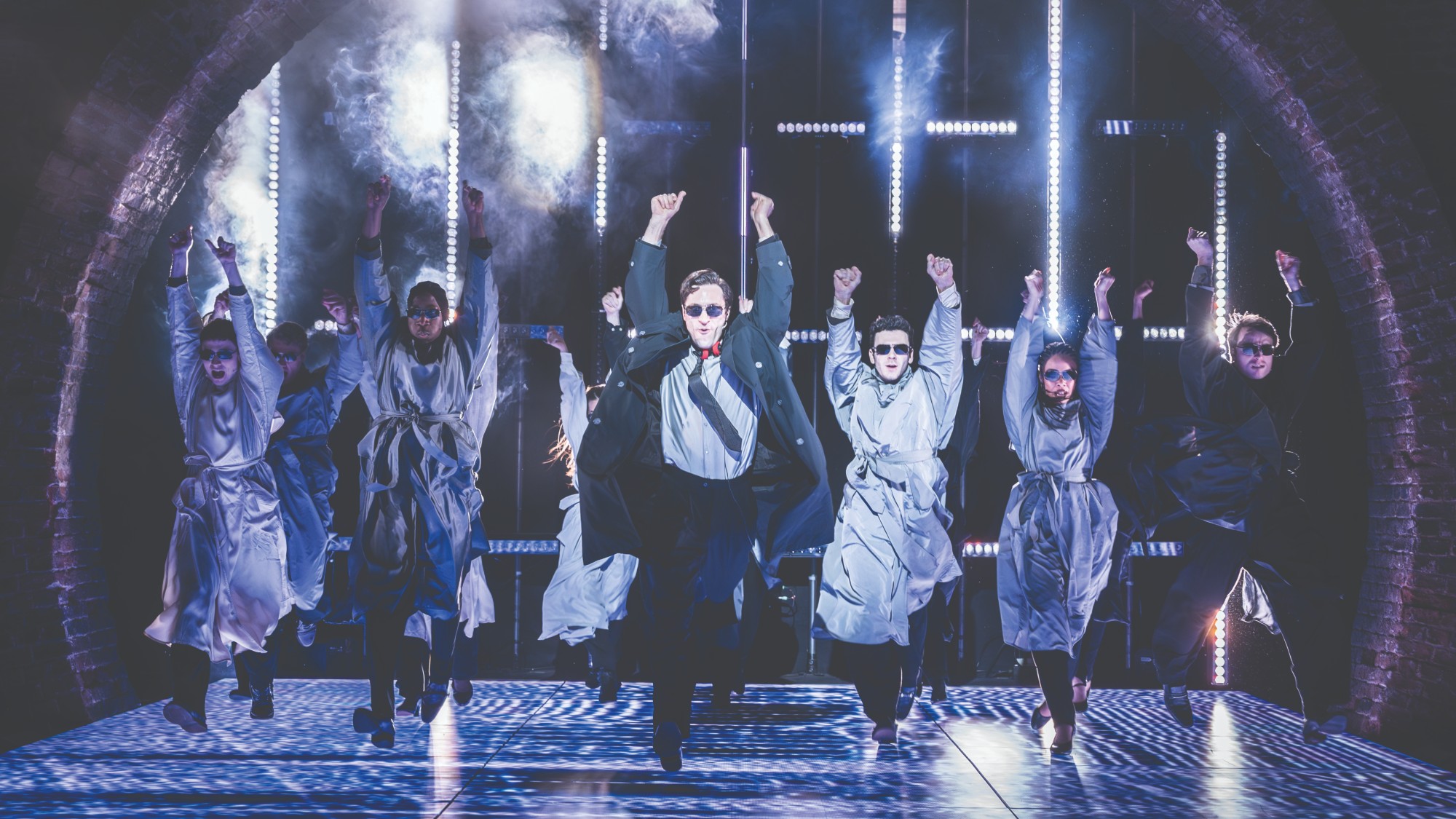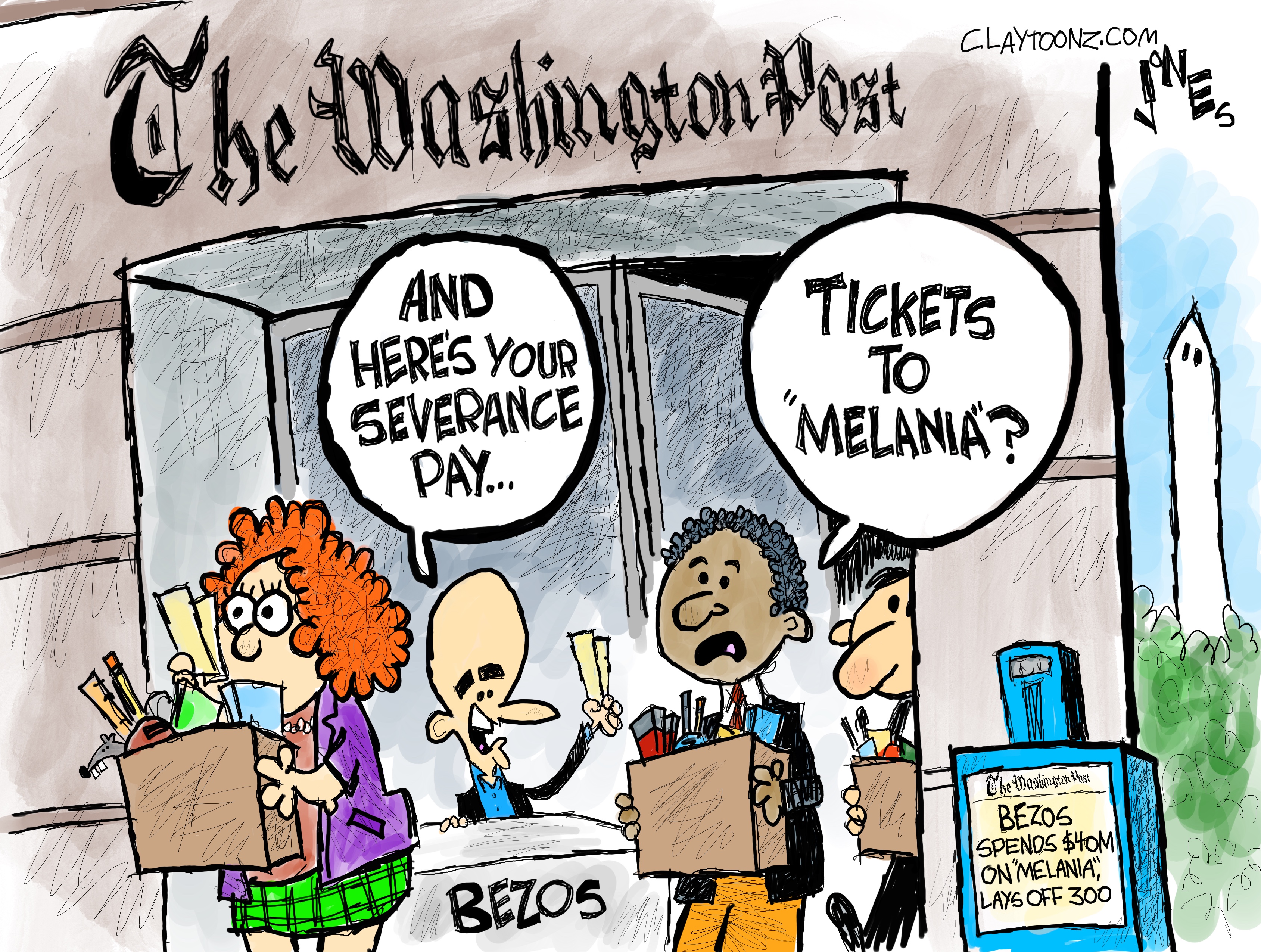10 things you need to know today: August 17, 2020
Democrats kick off their virtual convention, Pelosi calls lawmakers back from recess to vote on USPS proposal, and more


- 1. Democrats launch their virtual convention
- 2. Pelosi calls House back into session to vote on USPS bill
- 3. UNC reports 4th cluster of coronavirus cases
- 4. Thai protesters hold biggest rally since 2014 coup
- 5. Survey: 54 percent approve of Harris pick
- 6. New Zealand delays election due to new COVID-19 cases
- 7. Belarus holds massive protest against Lukashenko
- 8. Japan's economic decline is worst on record
- 9. Knorr changes dressing's name due to racist connotations
- 10. Record heat wave, lightning strikes fuel California wildfires
A free daily email with the biggest news stories of the day – and the best features from TheWeek.com
You are now subscribed
Your newsletter sign-up was successful
1. Democrats launch their virtual convention
The Democratic National Convention gets started Monday night with a lineup of speakers addressing the three main crises facing the United States heading into the November presidential election: the coronavirus pandemic, the economic crisis, and racial injustice. The virtual event will include a series of live video feeds. New York Gov. Andrew Cuomo and Michigan Gov. Gretchen Whitmer, both of whom attracted national attention leading their states' COVID-19 responses, will speak about overcoming the pandemic. Sen. Bernie Sanders (I-Vt.), one of presumptive Democratic nominee Joe Biden's primary opponents, and former Ohio Gov. John Kasich, a 2016 Republican presidential candidate and frequent critic of President Trump, will speak in a show of unity on Monday. Former first lady Michelle Obama will give Monday's keynote speech.
2. Pelosi calls House back into session to vote on USPS bill
House Speaker Nancy Pelosi (D-N.Y.) said Sunday that she is calling the House back from recess to vote on proposed legislation seeking to prevent the U.S. Postal Service from reducing service levels and causing mail delays ahead of the November election, when many Americans plan to vote by mail to reduce their risk of coronavirus exposure. The panel will invite Postmaster General Louis DeJoy and Postal Service board of governors Chairman Robert Duncan to testify before the House Oversight Committee in an Aug. 24 emergency hearing to explain "why they are pushing these dangerous new policies that threaten to silence the voices of millions," Democratic leaders said. DeJoy, an ally of President Trump, has limited overtime and barred postal workers from making extra trips to ensure on-time deliveries.
The Week
Escape your echo chamber. Get the facts behind the news, plus analysis from multiple perspectives.

Sign up for The Week's Free Newsletters
From our morning news briefing to a weekly Good News Newsletter, get the best of The Week delivered directly to your inbox.
From our morning news briefing to a weekly Good News Newsletter, get the best of The Week delivered directly to your inbox.
3. UNC reports 4th cluster of coronavirus cases
The University of North Carolina at Chapel Hill on Sunday reported its fourth cluster of coronavirus infections less than a week after the start of classes. A cluster is defined as five or more COVID-19 cases in a single place. The latest one was in Hinton James residence hall. The earlier clusters were reported in the Sigma Nu fraternity, the Ehringhaus Community residence hall, and Granville Towers, a private apartment complex that houses many students. These cases underscore the challenges ahead for universities seeking to bring students back to campus for the fall term while coronavirus cases remain high in many states. An off-campus sorority house at Oklahoma State was placed on quarantine after 23 members tested positive for COVID-19.
4. Thai protesters hold biggest rally since 2014 coup
More than 10,000 Thai protesters gathered in Bangkok on Sunday in the biggest anti-government protest since a 2014 coup. The protesters chanted "down with dictatorship" and "the country belongs to the people." Students, who have led protests almost every day for a month, called for curbing the monarchy's powers and ousting former junta leader Prime Minister Prayuth Chan-ocha. The demonstrators also want a new constitution and freedom from harassment for opposition figures. "We want a new election and a new parliament from the people," student activist Patsalawalee Tanakitwiboonpon said. "Our dream is to have a monarchy which is truly under the constitution." There was no immediate response from the Royal Palace, but a spokesperson for the government said the prime minister urged "officials and protesters to avoid violence."
A free daily email with the biggest news stories of the day – and the best features from TheWeek.com
5. Survey: 54 percent approve of Harris pick
Fifty-four percent of respondents in an ABC News/Washington Post poll said they approved of presumptive Democratic nominee Joe Biden's choice of Sen. Kamala Harris as his running mate. Only 29 percent said they disapproved. The poll, which was released Sunday, found Democrats approved of the pick 86 percent to 8 percent, compared to 25 percent to 55 percent among Republicans. Independents, who are potential swing voters in the presidential election, supported the inclusion of Harris (D-Calif.) on the Democratic presidential ticket by a 23-point margin, 52-29 percent. Seventy-eight percent of Black respondents approved, as did 65 percent of Hispanics. Disapproval of Harris as the Democratic vice presidential candidate was highest among conservatives, white evangelicals, rural residents, and non-college-educated white men.
6. New Zealand delays election due to new COVID-19 cases
New Zealand Prime Minister Jacinda Ardern announced Monday that she is delaying the country's parliamentary elections from Sept. 19 to Oct. 17 due to new coronavirus infections. New Zealand went 102 days without reporting a non-travel related case of COVID-19, but reported 13 new infections Sunday, bringing the country's number of active cases up to 69. Most of the cases were from community transmission and are linked to a cluster of 58 cases in Auckland, which is under a new lockdown. South Korea is also experiencing a surge in cases: On Sunday it reported 279 new confirmed infections, its highest 24-hour jump since early March. The vast majority of the cases came from the Seoul metropolitan area, the Korean Centers for Disease Control and Prevention said.
7. Belarus holds massive protest against Lukashenko
An estimated 220,000 Belarusians took to the streets Sunday in the biggest protest in the country's history, demonstrating escalating public anger over the disputed re-election of the country's authoritarian leader, Alexander Lukashenko. Seven days ago, Lukashenko claimed to have won the presidential election with 80 percent of the vote, igniting the biggest crisis he has faced since taking power 26 years ago. The protests have been energized by police violence against demonstrators. On Sunday, the anti-government protesters gathered on the opposite side of the city of Minsk from a much smaller rally where Lukashenko told supporters that he would not give up power. "I have never betrayed you and I never will," he said.
The Guardian The New York Times
8. Japan's economic decline is worst on record
Japan's economy shrank at a record annual rate of 27.8 percent in the second quarter as the coronavirus pandemic disrupted businesses around the world, according to government data released Monday. The figures indicated that the country's seasonally adjusted real gross domestic product, or GDP, fell 7.8 percent quarter on quarter, the worst since the government began compiling records of such drops in 1980. Japan's previous record contraction occurred during the global financial crisis just over a decade ago. Japan fell into recession, officially defined as two consecutive quarters of contraction, in the first quarter when its economy shrank by 0.6 percent following a 1.8 percent decline in the last three months of 2019.
9. Knorr changes dressing's name due to racist connotations
Knorr, one of Germany's best-known food companies, said it would change the name of a spicy dressing due to the racist connotations of its name, "Zigeunersauce," or "gypsy sauce," the German weekly Bild am Sonntag reported Sunday. The product will be renamed "Paprika Sauce Hungarian Style." The popular sauce will reappear in grocery stores under its new name within a few weeks, the company said. "Since 'gypsy sauce' can be interpreted in a negative way, we have decided to give our Knorr sauce a new name," said Unilever, the international consumer goods giant that owns Knorr. Civil rights groups started demanding a new name for the sauce years ago. The decision followed similar rebranding moves by numerous companies in the United States as protests against racism have spread.
10. Record heat wave, lightning strikes fuel California wildfires
The temperature in Death Valley, Calif., rose to 130 degrees on Sunday afternoon, possibly a world record for August. If validated, the temperature would be one of the three highest recorded on the planet ever, if not the highest. The rise came as triple-digit temperatures in California, along with freak lightning and high winds, contributed to wildfires raging across the state. A rare fire tornado was reported north of Lake Tahoe on Saturday. The National Weather Service in Reno said it planned to investigate the phenomenon as soon as the wildfire was under control. Moisture from an offshore tropical storm caused lightning in the Bay Area and elsewhere that ignited new spot fires. The heat wave also has resulted in rolling blackouts in parts of the state.
The Washington Post The Associated Press
Harold Maass is a contributing editor at The Week. He has been writing for The Week since the 2001 debut of the U.S. print edition and served as editor of TheWeek.com when it launched in 2008. Harold started his career as a newspaper reporter in South Florida and Haiti. He has previously worked for a variety of news outlets, including The Miami Herald, ABC News and Fox News, and for several years wrote a daily roundup of financial news for The Week and Yahoo Finance.
-
 American Psycho: a ‘hypnotic’ adaptation of the Bret Easton Ellis classic
American Psycho: a ‘hypnotic’ adaptation of the Bret Easton Ellis classicThe Week Recommends Rupert Goold’s musical has ‘demonic razzle dazzle’ in spades
-
 Political cartoons for February 6
Political cartoons for February 6Cartoons Friday’s political cartoons include Washington Post layoffs, no surprises, and more
-
 Trump links funding to name on Penn Station
Trump links funding to name on Penn StationSpeed Read Trump “can restart the funding with a snap of his fingers,” a Schumer insider said
-
 10 things you need to know today: January 24, 2024
10 things you need to know today: January 24, 2024Daily Briefing Trump closes in on nomination with New Hampshire win over Haley, 'Oppenheimer' leads the 2024 Oscar nominations, and more
-
 10 things you need to know today: January 23, 2024
10 things you need to know today: January 23, 2024Daily Briefing Haley makes last stand in New Hampshire as Trump extends polling lead, justices side with US over Texas in border fight, and more
-
 10 things you need to know today: January 22, 2024
10 things you need to know today: January 22, 2024Daily Briefing DeSantis ends his presidential campaign and endorses Trump, the US and Arab allies push plan to end Gaza war, and more
-
 10 things you need to know today: January 21, 2024
10 things you need to know today: January 21, 2024Daily Briefing Palestinian death toll reportedly passes 25,000, top Biden adviser to travel to Egypt and Qatar for hostage talks, and more
-
 10 things you need to know today: January 20, 2024
10 things you need to know today: January 20, 2024Daily Briefing Grand jury reportedly convened to investigate Uvalde shooting response, families protest outside Netanyahu's house as pressure mounts for hostage deal, and more
-
 10 things you need to know today: January 19, 2024
10 things you need to know today: January 19, 2024Daily Briefing Congress averts a government shutdown, DOJ report cites failures in police response to Texas school shooting, and more
-
 10 things you need to know today: January 18, 2024
10 things you need to know today: January 18, 2024Daily Briefing Judge threatens to remove Trump from his defamation trial, medicine for hostages and Palestinians reach Gaza, and more
-
 10 things you need to know today: January 17, 2024
10 things you need to know today: January 17, 2024Daily Briefing The US strikes Houthi targets in Yemen a third time, Trump's second sex defamation trial begins, and more
